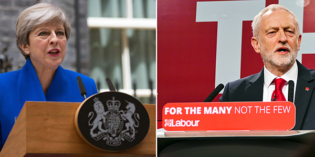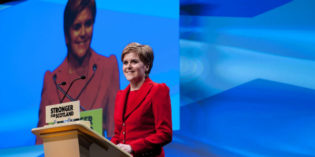Tag: Political Parties

What can political parties do to involve more women in party politics?
In most political parties the majority of members are men, which has implications for achieving equal representation at all levels of politics. Aldo F. Ponce, Susan E. Scarrow and Susan Achury find that this gender gap varies considerably between parties, and that having more women MPs helps to increase women’s participation at the grassroots level.

Book Review | Cameron: The Politics of Modernisation and Manipulation by Timothy Heppell
In Cameron: The Politics of Modernisation and Manipulation, Timothy Heppell offers a new analysis of David Cameron’s leadership of the Conservative party (2005–16) and of the UK, organised around the key themes of modernisation and manipulation. In his admirably objective study, drawing on compendious reading of relevant sources, Heppell demonstrates that while Cameron’s attempts to ‘de-toxify’ his party are important to his legacy, it is equally profitable to regard him as a manipulator of the broader political landscape, writes Mark Garnett.

Citizens (mistakenly) perceive female-led political parties as more moderate
Does women’s leadership affect citizens’ perceptions of political parties? Diana Z. O’Brien shows that female-led parties are perceived as more moderate than male-led organisations, even though election manifestos authored by these parties are actually slightly more extreme than those by male-led parties.

Do early elections provide a financial advantage for parties in power?
If parties in power have the discretion to call an election when they wish, rather than being restricted to fixed electoral terms, do they have an advantage in terms of raising campaign funds? Looking at the case of Denmark, Lasse Aaskoven finds that they do, which could have implications for the UK, and its rules about electoral terms.

Membership organisations: how to boost numbers and activate engagement
To help organisations increase their number of active members, Kate Dommett and Sam Power explain how people decide whether to join (and remain in) an organisation, as well as what may be keeping them from participating in its activities.

Campaign spending and voter turnout: does a candidate’s local prominence influence the effect of their spending?
At election time, political candidates in Britain routinely spend significant sums of money on their local campaigns. Generally speaking, the more individual candidates spend, the higher turnout in that constituency. But while some candidates are major contenders in their area, many candidates who are unlikely to win also spend substantial sums on their campaigns. By analysing candidate spending data from the 2010 general election, Siim Trumm, Laura Sudulich and Joshua Townsley find that the money spent by viable contenders has a greater impact on voter turnout than spending by candidates who are unlikely to win.

How democratic are the UK’s political parties and party system?
For our 2018 Audit of UK Democracy, Patrick Dunleavy and Sean Kippin examine how democratic the UK’s party system and political parties are. Parties often attract criticism from those outside their ranks, but they have multiple, complex roles to play in any liberal democratic society. The UK’s system has many strengths, but also key weaknesses, where meaningful reform could realistically take place.

Why does class affect voting?
Patterns of class voting remain important in many Western European countries, but the drivers of class support for particular parties remains under researched. Peter Egge Langsæther finds that, beyond left-right divides on economic policies, the salience of immigration and environmental policies by class is significant. However, less than half of class allegiance can be explained by these policy congruences, and so it is a subject that requires further research.

How the SNP’s post-referendum membership has changed the party – and what has stayed the same
As the SNP meets in Aberdeen for its party conference, James Mitchell looks at the impact of the 2014 post-referendum surge in membership on the party’s organisation and finances, and how this precipitated the proposed changes to the party’s constitution.

Same difference? Female (and male) members of Britain’s political parties
A recent report by the Party Membership Project run by Monica Poletti, Tim Bale and Paul Webb has shown how the membership of Britain’s main political parties is more like to be male, middle aged and middle class. The results of this survey were explored in a discussion with several leading female MPs, which highlighted common concerns about party behaviours, class and gender barriers that reinforce these disparities in participation.


 Democratic Audit's core funding is provided by the Joseph Rowntree Charitable Trust. Additional funding is provided by the London School of Economics.
Democratic Audit's core funding is provided by the Joseph Rowntree Charitable Trust. Additional funding is provided by the London School of Economics.